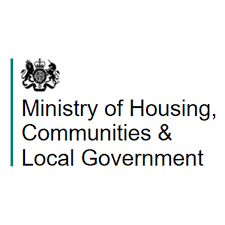Alongside the implementation timeline for the roll out of the Renters Rights’ Act announced last night, the government has also released advance guidance to support landlords and letting agents.
It confirms that councils across England will be legally responsible for overseeing these new rights from 1 May 2026, backed by stronger enforcement powers. This includes tougher fines of up to £7,000 for breaches, rising up to £40,000 if they repeatedly or continue to breach the rules or commit a serious offence.
In addition, tenants or local authorities will also be able to seek rent repayment orders, forcing landlords to pay back rent for offences.
After the initial phase of changes at the start of May, the Renters’ Rights Act will come in two further stages, with phase 2 (starting late 2026) introducing the Private Landlord Ombudsman and a Private Rented Sector Database.
More protections to improve conditions in private rented homes will come in phase 3, with public consultations informing their introduction.
Ben Twomey, chief executive of Generation Rent, said: “This new law is a vital step towards re-balancing power between renters and landlords and should be celebrated.
“Our homes are the foundation of our lives, but for too long our broken renting system has left renters staring down the barrel of poverty and homelessness. For decades, Section 21 evictions have forced renters to live in fear of being turfed out of our homes, preventing us from raising valid concerns with our landlords. At last we know when this outdated and unfair law will be sent packing.
“This Renters’ Rights Act is the result of years of tireless campaigning from the renter movement, alongside the dedication and strength of ordinary renters. With change on the horizon, I hope that renters across England can rest a little easier tonight in recognition of what we have achieved together.”
Tom Darling, director of the Renters’ Reform Coalition, which includes Shelter, Generation Rent, Citizens Advice and ACORN, commented: “Today’s announcement that the end of Section 21 evictions will come into force on 1st May is huge news for England’s 12 million renters. We have fought for this day for so long and to now have certainty about when the last ‘no-fault’ eviction will be is crucial for our members, who will be trying to ensure as many renters as possible are aware of their new rights.”
“In addition, it will be important that the government quickly implement the whole Renters’ Rights Act – including the Private Rented Sector Database and Awaab’s Law – so that renters can feel the full benefits of this once-in-a-generation upgrading of their rights as soon as possible.”
Sarah Elliott, chief executive of Shelter, added: “Today marks a pivotal step forward for England’s 11 million renters as the government unveils its roadmap for implementing the landmark Renters’ Rights Act. This is the result of years of determined campaigning by renters across the country who refused to accept the injustices of a broken private rental system.
“For too long, renters have lived under the constant threat of no-fault evictions. Families have been torn from their communities, with record numbers pushed into homelessness. Too many have been silenced about discrimination and unsafe conditions. Today we celebrate that their voices have finally been heard, and change is on the way.
“But renters must understand that their rights will not change today. The current system remains in place until the new rights come into force from May 1, 2026. Until then, we stand ready to support renters and help them understand the vital changes the Act will introduce.”
In stark contrast to the comments provided by the pro-tenant groups, Phil Turtle, a licensing specialist at Landlord Licensing & Defence, felt obliged to speak on behalf of the landlord community.
He said: “The confirmation of a 1 May 2026 start date for the Renters’ Rights Act marks a decisive shift in how the private rented sector will be regulated. What many landlords have not yet grasped is that the legislative overhaul does not stop with tenancy reform. We are about to see a far more assertive enforcement landscape, driven by councils armed with stronger powers, bigger penalties and clearer duties.
“Included is a Decent Homes Standard and the long-awaited and allegedly ‘upgraded’ Housing Health and Safety Rating System. The government says it will offer a more transparent and efficient way of assessing hazards. What is vertical is it will make it much harder for poor property conditions to slip through the cracks. Every landlord should be prepared for far closer scrutiny of the standard of their homes an draconian enforcement as councils monetise the new legislation.
“From 1 May next year, councils will cease to have discretion as to enforcing housing standards laws. Every council in England will be legally required to police these new rights. The first thing government did after Royal Assent was to issue guidance to councils on their new powers! And boy, they now have a strengthened toolkit to do it. Fines will start at £7,000 for many breaches, but the ceiling rises to £40,000 where offences are repeated, ongoing or serious.
On top of that, tenants and councils will have strengthened access to rent repayment orders (RRO), for a wider range of offences and extended from 12 months’ rent to 24 months. So expect to see RRO’s starting at £24,000 and upwards.
“What should concern landlords even more is the massive expansion of investigatory powers. Councils will be able to demand information from landlords, agents, banks and contractors. They will be permitted to enter business premises and, in specific situations, homes to check compliance. They will also have the authority to seize documents and computers if they ‘suspect’ wrongdoing. This represents a level of investigatory reach that many landlords have never experienced before. Powers in many cases greater than the police and frankly with little or no accountability. Landlords should indeed be afraid.
“Penalties will also take on a new level of severity. Councils will be able to issue larger fines (which they get to keep for their revenue budgets), escalate sanctions for repeat offenders and use strengthened rent repayment orders to recover rent on behalf of themselves or DWP. Some councils even employ specialists to help tenants issue RROs against landlords to make sure landlords are penalised to the max. It is clear that habitual non-compliance will no longer be met with a slap on the wrist.
“To prepare for these responsibilities, local housing authorities will receive a share of more than £18 million this year. With enhanced funding and clearer rules, we can expect enforcement activity to increase sharply.
“My advice to landlords is simple: take this seriously and get ahead of it now. The margin for error is minimal, and councils will soon have more resources and the statutory duty to act quickly and decisively against landlords.
“Many landlords this Christmas will be asking themselves whether the benefits outweigh the risks and whether they want to put their livelihoods and pensions on the line to provide homes for others.”
Turtle concluded: “Speaking as a landlord, I’m out!”








